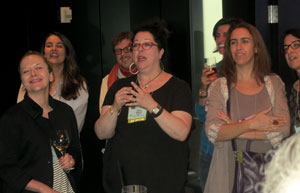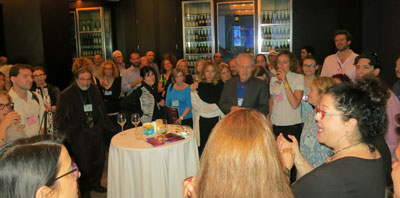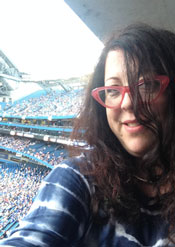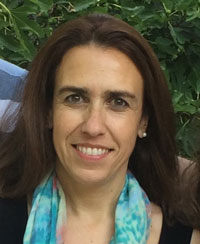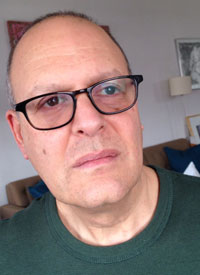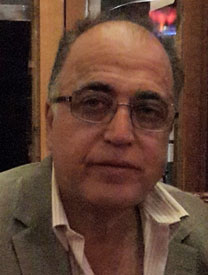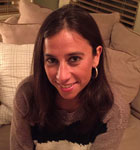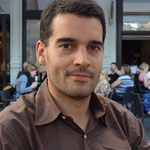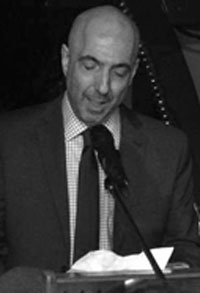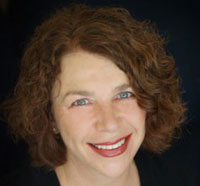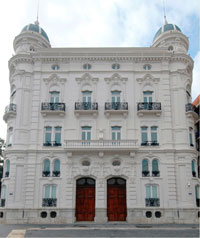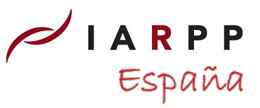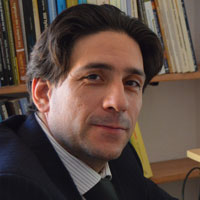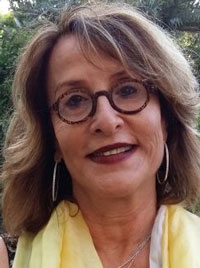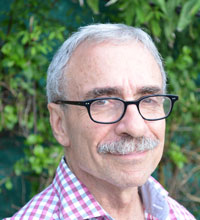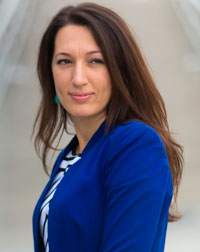By Susanna Federici-Nebbiosi (Italy) and Gianni Nebbiosi (Italy)
We are pleased to open the call for papers for IARPP 2016 Conference in Rome, Italy.
The Conference will be held at Teatro Argentina, Largo di Torre Argentina, 52 – Rome, from Thursday, June 9, through Sunday, June 12, 2016.
Here is a description of the conference and guidelines and process for proposing a paper or panel. This information can also be found on the conference page of our website: http://iarpp.net/events-hub-page/upcoming-conference/.
IARPP 2016 ROME, ITALY
THE ARTS OF TIME.
RELATIONAL PSYCHOANALYSIS AND FORMS OF VITALITY IN CLINICAL PROCESS
In these recent years psychoanalysis has been dealing more and more with the exploration of the therapeutic process and the implicit dimension of the clinical exchange. A relational perspective on the clinical process emphasizes how it is a co-constructed result of a dyad engaged in a deep and creative exploration of the inner vicissitudes of the patient and the vicissitudes of the dyad itself. In their daily work relational therapists are challenged to facilitate a kind of creative dimension in order to improve the meaning making process.
For eons the arts have placed at their core an interest in what today – in our field – we call “implicit” and have expanded a wisdom about the creative process that develops in time, between human beings, going beyond words and content. As Daniel Stern, Colwyn Trevarthen and many other authors have emphasized, these dimensions are fundamental to the interactional emergence of the mind.
Forms of vitality are those dynamic forms that permeate daily life, psychotherapy, and the arts. There is a time profile, a sense of time, that shapes the experience of vitality as it is created in the mind. Vitality means the capacity to live, grow, or develop; the capacity to endure, the capacity for the continuation of a meaningful existence.
We think that one of the challenges of contemporary psychoanalysis is to be open and see what it can learn from the arts by taking a new perspective on the way in which psychoanalysis has historically dealt with arts: not trying to explore psychoanalytically the aesthetic experience (or even worse “to analyze the artists”), but trying to explore the experience of clinical psychoanalysis using artistic ways of thinking. As we stress the correlation with the clinical interaction, we want to take into particular consideration those arts that express themselves in time – theater, music, dance, cinema, performative arts – but any reflection on how artistic non verbal aspects (e.g. the style in literature and poetry) can improve the wisdom of the clinical dialogue, is welcome.
This topic emerges quite naturally from the context of the city of Rome, that is in itself a living stratification of arts and times. To make this event even more unique, the Conference will be held at the Teatro Argentina, the most important theatre of Rome that is located at the core of the historical center of the city.
Conference Co-chairs:
Susanna Federici, PhD and Gianni Nebbiosi, PhD
International Steering Committee:
Alejandro Ávila Espada, PhD (Spain); Sharon Beiman, PhD (Israel); Cathy Hicks, PhD (Australia); Juan Francisco Jordan, MD (Chile); Hazel Ipp, PhD (Canada); Rina Lazar, PhD (Israel); and Chana Ullman, PhD (Israel)
Local Committee:
Marina Amore, PhD; Fabia Eleonora Banella, PsyD; Sara Biondi, PsyD; Margarita Kahn, PhD; Luca Migliaccio, PsyD; Carmine Schettini, MD; Maria Tammone, MD
CALL FOR PAPERS GUIDELINES AND PROCESS:
We welcome all IARPP members to submit PROPOSALS for individual papers and/or panels pertaining broadly to the conference theme. Proposals for individual papers should be around 600 words. Panels should include no more than three papers on a chosen topic. Proposals for panels should be no longer than 1200 words in total, and should consist of an overview and abstracts of individual papers.
IARPP ‘s policy permits the inclusion of only one presentation per person in the program and encourages the submission of original papers that were not previously presented in large meetings.
The Conference Committee may group individual papers that are accepted for presentation with other papers in any session.
FINAL PAPERS will only be requested upon the acceptance of your proposal for the conference. Final papers should be between 2,000 and 3,000 words and will be due by no later than March, 2016. All papers are to be submitted in English.
PROPOSAL SUBMISSION PROCESS:
The deadline for receipt of PROPOSAL submissions is Saturday, October 31, 2015. No names should appear on your proposal submission as reviews are anonymous. You must submit your proposal as an email attachment sent to iarpp.rome16@gmail.com Please be sure to include a cover sheet, description of the proposal, three educational objectives, the title of your paper, and an abstract. If proposing a panel please include the title of your panel and a description of the panel with a detailed, one paragraph abstract of each paper within the panel.
Please submit the following materials:
- Call for Papers Cover Sheet. One per author (available on the conference website, http://iarpp.net/events-hub-page/upcoming-conference/ This form can be filled in online—i.e., you do not need to print it out).
- Proposal title and description with author’s name removed. (Panel <1200words. Paper <600words).
- One paragraph abstract and THREE educational objectives for each paper. (These statements must clearly describe what the learner will know or be able to do as a result of having attended your presentation. Learning objectives must be observable and measurable. e.g., list, describe, apply, analyze, assess, utilize, critique, etc.) These items (abstract and 3 educational objectives) should be on the same page and must be typed.
- Full curriculum vitae AND biographical sketch for each author.
Due to accreditation application requirements, all of these materials must be submitted in order for your proposal submission to be reviewed. We regret that presentations submitted without all of the above items cannot be considered for review. All proposal submissions will be reviewed by the Program Committee. Authors will be notified of the Committee’s decision by early January 2016. Acceptance is limited by space availability.
Please submit the above information by Saturday, October 31, 2015 to
Susanna Federici, Conference Co-chair
Email: iarpp.rome16@gmail.com

